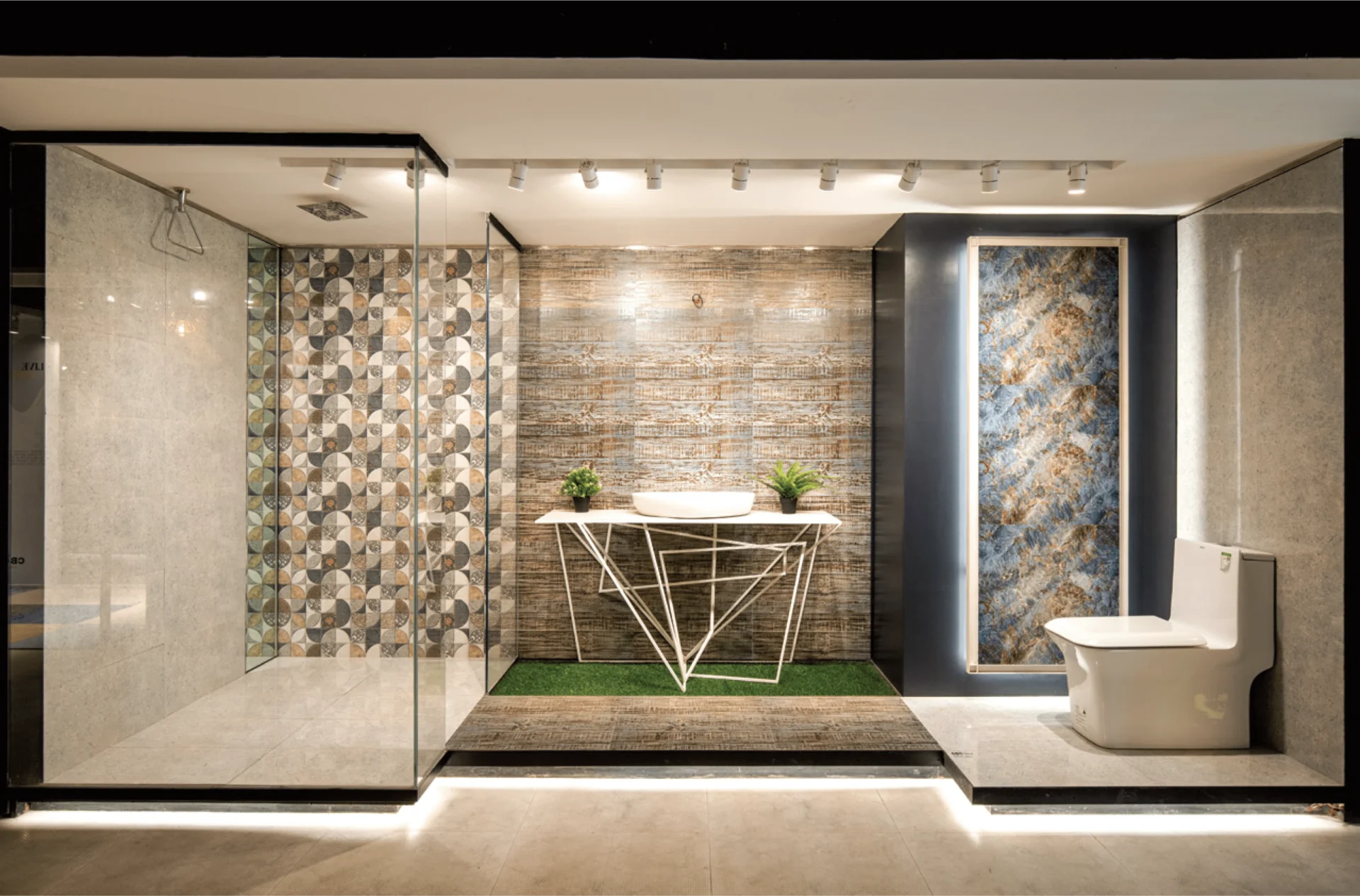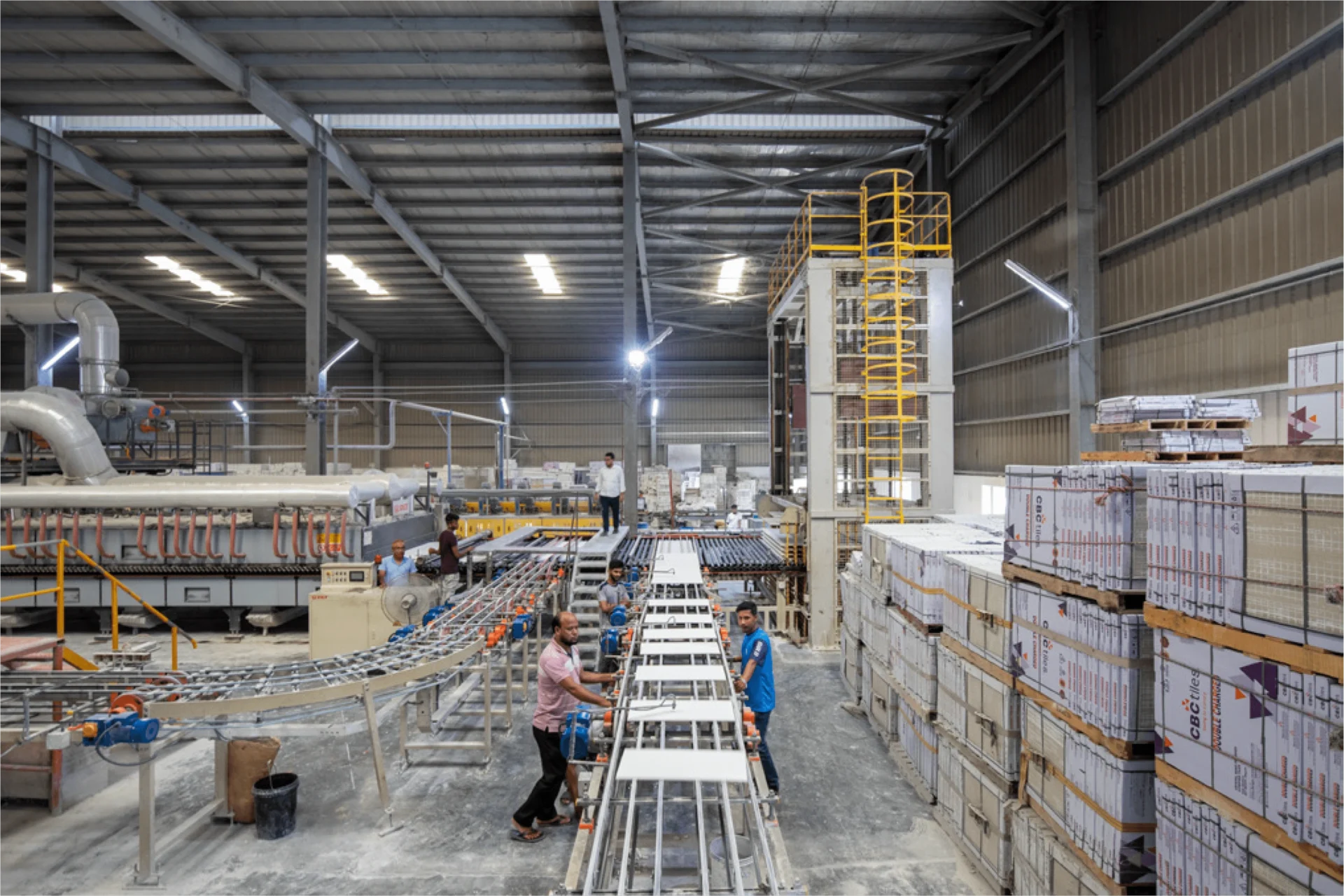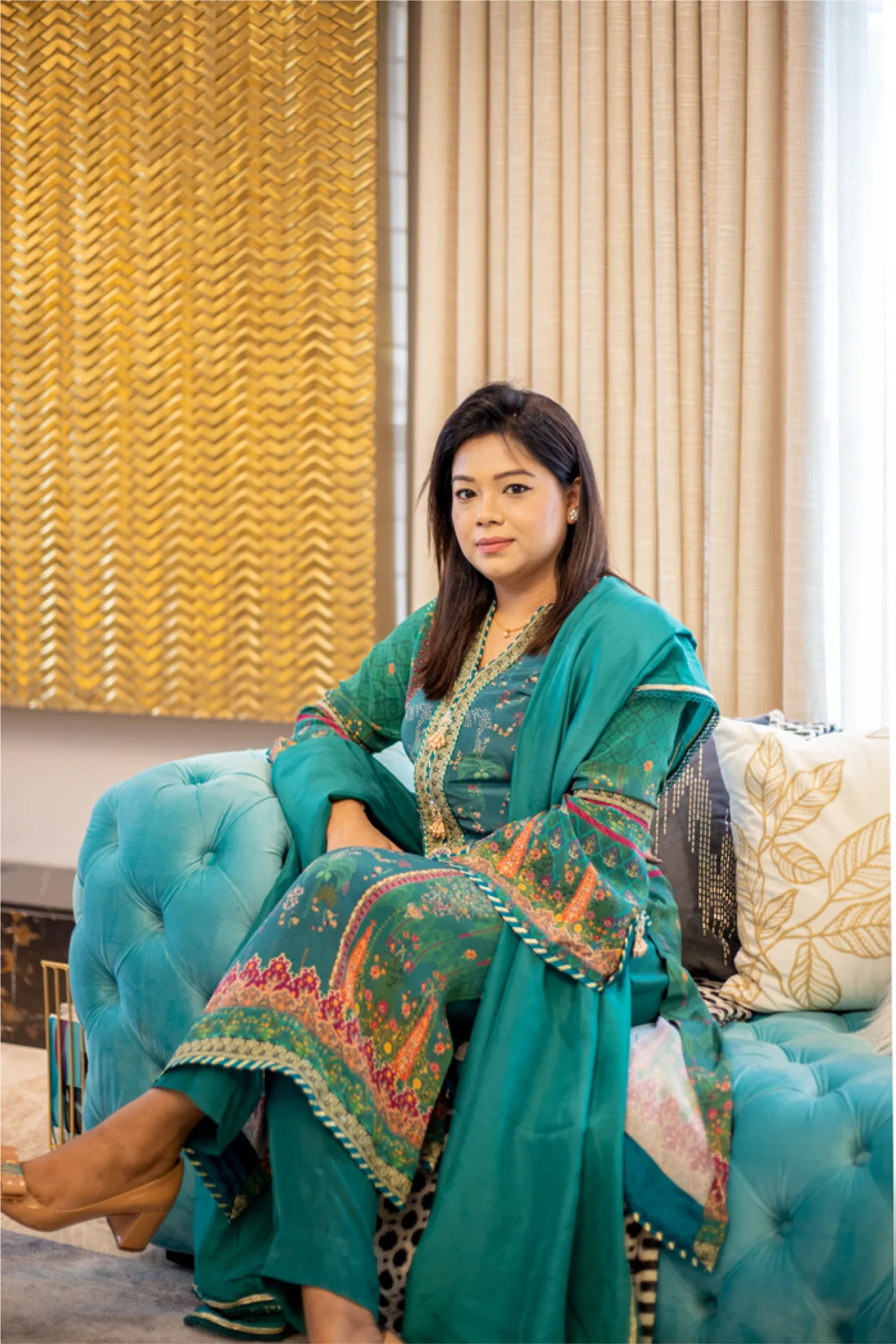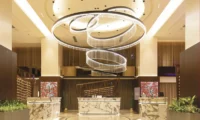Related Posts

Paragon Ceramic, Pioneering Innovation and Sustainability in a Challenging Global Market
The global ceramic industry, including Bangladesh, is navigating a period of uncertainty due to economic slowdowns, fuel shortages, and inflation. However, Paragon Ceramic Industries Limited (PCIL) has managed to stand out as a leader in this competitive sector, driven by an unwavering commitment to quality and resilience. Below is a closer look at the company’s journey, challenges, and future plans as discussed by its Managing Director, Farian Yusuf. A Journey of Resilience and Early Success Founded in June 2008, Paragon Ceramic began commercial production in December 2010. Remarkably, within just two months, the company achieved its first export, a significant milestone that set the stage for its future success. Despite the current oversupply in the domestic market, Paragon continues to thrive internationally, with exports showing considerable growth. “Our entry into exports soon after production was a major accomplishment,” said Yusuf. “Although the local market is challenging, we are seeing tremendous growth internationally.” Paragon Ceramic: A Leader in High-Definition Porcelain Tableware Manufacturing Located in Mirzapur, Gazipur, approximately 50 kilometers from Dhaka, Paragon Ceramic benefits from a strategic location with access to all necessary infrastructural facilities. With a total investment of over US$ 16 million, PCIL has established itself as a key player in the porcelain tableware industry in Bangladesh. Cutting-Edge Technology and Skilled Workforce PCIL specializes in manufacturing and exporting high-definition porcelain tableware, utilizing state-of-the-art machinery sourced from renowned global suppliers like SKK and TAKASAGO from Japan, TCK from Taiwan, Modena and COTO from China. The factory is supported by a workforce of approximately 1,600 highly skilled and motivated employees, ensuring the highest quality in every product. “In a market where competition from China is fierce due to low pricing, Paragon Ceramic has adopted a strategy of prioritizing product quality over competing on price. China, with its advanced technology and domestic resource pool, offers products at far lower costs than Bangladesh.” Durability and Performance Paragon Ceramic decorated tableware combines vibrant colors and unique shapes that endure even the most demanding dining kitchens. Our proprietary clay recipe, infused with alumina, ensures strength, durability and a pure white finish. Yusuf said “Tested for quality, our products resist fading, chipping, and scratching, even after 500 dishwasher cycles. With advanced shape engineering and glazing techniques, we guarantee functionality, hygiene, and impact resistance”. Innovation and Global Reach Through cutting-edge technology and constant design innovation, Paragon Ceramic stays ahead of trends, offering high-performance tableware. With a robust global distribution network, we ensure timely deliveries worldwide. State-of-the-Art Manufacturing and Quality Assurance PCIL operates with cutting-edge technology, from its porcelain plant to its decal and packaging units. With modern equipment from Japan, Taiwan and China, and a highly skilled workforce, PCIL produces high-definition porcelain tableware for global markets like IKEA and H&M. The company excels in custom designs, meeting clients’ diverse requirements with unmatched flexibility and service. Precision and Excellence in Every Step PCIL’s advanced Mould unit and dedicated Quality Assurance (QA) team ensure every product meets strict international standards. With over 25,000 Mould produced monthly, the team delivers high-quality ceramics while adhering to ISO 9001:2015 standards for superior customer satisfaction. Overcoming the Industry’s Biggest Challenges Paragon has faced its fair share of challenges, from fuel shortages to a shortage of skilled workers. The company’s resilience in overcoming these hurdles speaks volumes. According to Yusuf, the biggest obstacle remains the gas crisis, which has severely impacted production costs and supply. “Fuel costs have skyrocketed by over 250 per cent, yet gas pressure remains very poor, affecting overall production,” he explained. “We’ve had to turn to alternative energy sources but that increases our costs, making us less competitive and facing global challenges to survive” Despite these difficulties, Paragon has continued to expand and evolve, focusing on maintaining its stronghold in international markets while also striving to meet local demand for Porcelain tableware. Quality over Price: A Global Strategy In a market where competition from China is fierce due to low pricing, Paragon Ceramic has adopted a strategy of prioritizing product quality over competing on price. China, with its advanced technology and domestic resource pool, offers products at far lower costs than Bangladesh. However, Paragon’s superior quality remains a competitive edge. “While China has access to its own resources, we rely heavily on imports, which raises our costs,” said Yusuf. “But in terms of quality, we’re second to none and that’s what has helped us to secure buyers internationally.” Reducing Import Duties: A Key to Growth Yusuf believes that reducing import duties on raw materials could significantly boost Bangladesh’s Ceramic industry and its global competitiveness. Since the sector relies entirely on imported raw materials, lowering these costs could fast-track growth and innovation. “If the government offers duty benefits, the sector will see accelerated development. We have the potential, but policy support is crucial to our future,” said Yusuf. Attracting Foreign Direct Investment (FDI) for Expansion Paragon Ceramic is also focused on attracting foreign direct investment (FDI), which Yusuf sees as essential for broadening the scope of the industry. More FDI could increase the number of companies in the sector, giving buyers more options and boosting confidence in Bangladeshi ceramics. “In the same way that Bangladesh’s garment industry grew with increased foreign investment, the ceramic sector can also be benefited,” Yusuf explained. “The more companies we have, the more options buyers have, leading to better overall industry growth.” The Gas Crisis: A Major Production Bottleneck The ongoing gas crisis has led to a surge in fuel prices and decreased availability, creating a substantial challenge for Paragon and other industries. Low gas pressure in industrial areas like Gazipur has severely impacted production as well as quality that reflects on financial statement. “The entire industrial area is affected by this, and it’s not just us—garment and other industries are also facing disruptions,” Yusuf said. “We need long-term solutions for energy security if we are to continue growing.” Technological Advancements: A Path Forward Yusuf emphasizes the need for technological innovation to enhance production efficiency and maintain competitiveness. While inflation has dampened local

Artisan Ceramics at the forefront
Amongst the Royal collection in the Buckingham Palace resides gold-covered renditions of Artisan Ceramics. From a company struggling to export, to winning the national export trophy five times in a row, Artisan Ceramics has seen 3 times expansion over the past few years. The entirety of a company’s growth and success inevitably relies on the decisions made internally. Artisan Ceramics Ltd. suffered significant loss until 2011. With new leadership under Finlays, and a change in the modality of business and redesigning, it now has a factory constructed across six acres of land in Sreepur, Gazipur, and a capacity of producing 10 million pieces of assorted premium quality porcelain tableware annually. The current expansion will raise this capacity to 22 million. Artisan Ceramics is an export-oriented tableware company that supplies to over 20 countries across Europe, America, and Asia, and has evolved into a leading manufacturer with no stop to its growth. The company has a contribution of 12-15 percent in the national export revenue. Surely, success in such a short time is a wonder on its own. To find out more, Ceramic Bangladesh Magazine author recently had the opportunity to discuss the adaptations of Artisan Ceramics that led to its success, with M. Mamunur Rashid, CEO of Artisan Ceramics Ltd. Here’s what we’ve learned: The first adaptation Artisan knew Saggar firing was wasteful Saggar or Saguaro is a covering used over ceramic ware when under intensive firing in the kilns. This protection helps safeguard the ware from coming in direct contact with the Kiln, debris inside the kiln, and other gases and smoke. The problem with saggar firing is that the saggar heats up first and then transfers the heat to the product; this makes the process 15-hour long cycle. With Artisan’s adaptation, open and fast firing, it’s a six-hour firing process. “Time-wise and price-wise, Saggar is inefficient. Again, there is the cost of the man behind the machine,” says Mr. Rashid. Fired three times for a longer life! “I have traveled across more than 10 countries just to see the technology companies have adopted, and learned, that the type of products we tend to manufacture are widely unavailable,” said Mr. Rashid. “We have products that have been fired three times, which make them much more durable. These products are more popular in Europe since they are more durable and can withstand knives and forks,” he added. At Artisan, products are fired at high degrees of temperatures — 1330°C to 1350°C, about 100° higher than the global rivals. Discussing global demand with relevance to this particular firing process, we find: “The hard glaze we are using, makes the product stronger, more scratch-proof, and absorption free,” said Mr. Rashid. The global demand has shifted towards such products because of such features. Raw materials sourced from around the world Artisan Ceramics sources its raw materials from almost every corner of the globe –the UK, Germany, Italy, New Zealand, Vietnam, Japan, China, and India are some of them. The two types of minerals that make up for 50% of the body, feldspar, and quartz, are brought in from Rajasthan, India. The company also imports alumina which is used to make the body stronger and helps meet HoReCa standards. “Using the best quality raw material with a natural colour is important because the glaze is translucent and the body colour is what you see,” he said. These designs are in trend now and a personal favourite of Mr. Rashid. The company even imports from specific mines. Furthermore, Artisan buys the best quality gold from Heraeus Germany and colors from Izawa Pigments, Japan. Innovative Designs that go well with the trend, and the technology behind it. Artisan is constantly working on new designs. “We are innovating and have recently created double-layer body tea cup that keeps tea & coffee warm for a longer period of time,” Mr. Rashid mentioned. The design depends on customer trends and comes in cyclic order, says Mr. Rashid. Something that is currently trending are reactive glazes where you allow the finishing to be exactly how the kilns are making them fascinate many people. “Keeping up with the ever-evolving trends is a constant challenge, but traditional designs have resurfaced and are a popular preference now,” said Mr. Rashid. Artisan will be introducing a certain collection inspired by the Rajasthani culture. A designer from Sri Lanka by the name of Sudath Fernando is also coming in to train employees. Stay tuned with us for future features. Regarding technology, he said: “We want to make our factory fuel efficient. Our dryers are like ovens that collect heat and reuse it. I have visited a few factories in Europe and have seen how they are doing things, we have called SACMI, Italy, to help us upgrade.” The machines at Artisan’s factory are from the USA, the UK, Japan, Taiwan, and China. Artisan has taken green initiatives- they refine and reuse 90% of wastewater, collect rainwater in underground tanks, and reuse heat from the ovens. The company purifies water to the extent that it can be used for irrigation. “Every factory is concerned and the government is putting emphasis on sustainable approaches,” stated Mr. Rashid. Artisan’s plan to sell in bulk Following the recent expansion, Artisan is now concentrating on bulk buyers- examples would be hypermarkets. The marketing team is also trying to bring about a trend change by promoting the use of porcelain over bone china. This is because the water absorption of Bone China is high, it loses colour, and porcelain survives longer. Ultra Bone Porcelain: the newest innovation from Artisan Some customers are price-centric and some look for quality. That is why Artisan needed to innovate a new product retaining the same mechanical strength of pure porcelain and exceptional whiteness that was sure to win people over. Henceforth, came the Ultra Bone Porcelain. Mr. Rashid introduced a special body that can beat the competition and customers are willing to pay premium price for it. Artisan performs CSR Artisan gives education
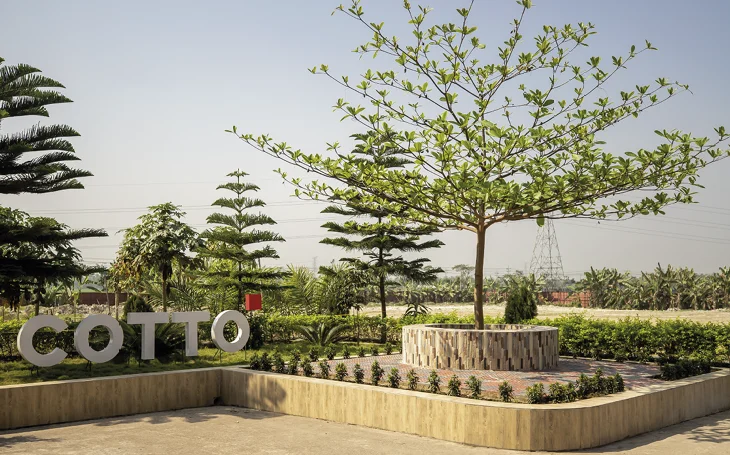
CHARU-The Luxurious Sanitary Ware Brand
CHARU Ceramics has offered a new choice for decorating bathrooms in Bangladesh. CHARU has been able to make the use of luxury bathroom materialls easily possible go the mass people. Whereas it used to cost around Tk. 4,00,000 on an average earlier to build a luxurious bathroom, CHARU can supply the same quality of luxury products for Tk. 50,000 to Tk. 1,00,000 only. This is the great achievement of the Bangladeshi brand. CHARU Ceramic Industries Limited was incorporated as a company in March 2012 and started its journey from 2017 by producing world-class sanitary ware in the country. It is the first international major standard sanitaryware manufacturing plant in Bangladesh with the assistance of the best consultants from Europe and Asia. This sanitary ware manufacturer, certified by ISO 9001:2015, has collaborated with COTTO, one of the most popular brands in the world. Some 1,800 skilled workers are working in the CHARU Sanitary ware factory established in Madhabpur, Habiganj. The plant is equipped with state of the art technology such as robot glazing, high pressure casting, advance kiln and molder and the latest and advanced manufacturing machinery of sanitary wares from SACMI, UNIMAK and HEXIANG with production capacity of 1.5 million pieces a year. Machineries of the world’s most renowned companies such as Gaiotto, Riedhammer and Unimak are installed to produce the best quality of sanitary ware in CHARU Ceramic Industry. It is remarkable in the history of Bangladesh’s sanitaryware industry that CHARU manufactures one of the most internationally recognised sanitary ware brand ‘COTTO’ in Bangladesh with technical collaboration of Siam Sanitary Ware Industry Co. Ltd., Thailand. COTTO is helping it to achieve the best quality by providing technological support, knowledge transferring and trained employees. Currently, a wide range of water closet, wash basin, urinal and squat pan are produced by both the brands CHARU and COTTO – and these are manufactured in the country with utmost care and skills. CHARU ceramic wants to become the number one sanitary ware brand in Bangladesh with the finest products and efficient services. CHARU Ceramic Industries Limited has been set up initially to fulfill the domestic market demand for products and then to export. Manufacturing products of higher standarcs, CHARU gives the customers with proper value and extreme durability of the products. The products have unique designs and it upgrades products range every year with hot designs. CHARU is manufacturing products using the latest technology. While showing internationally recognised innovativeness and proving technological ability, flexibility and adaptability, CHARU can meet the demand of mass production. Interview with Managing Director Quality, Design and Plumbing services are the main pillars of CHARU’s success The name ‘Charu’ itself associates with the meaning of finesse. Although the local sanitary market in Bangladesh is still very young, the sector is growing rapidly, thanks to the growth of middle class, change in their taste and rapid urbanization process,” said Mohammad Shamsul Huda, Managing Director of CHARU Ceramics. He told Ceramic Bangladesh that the current market for sanitary ware in the country is in a range of Taka 1,000 crore to Taka 1,200 crore a year. CHARU owns 20 per cent of the market share, he said and added that because of the construction boom, this market is growing at a rate of 15-20 per cent every year. The demand for sanitary products is increasing in the villagesas well. And thedemand for commodes is increasing in the cities, he pointed out. The managing director mentioned that CHARU continues to compete with the imported foreign products of similar quality. However, CHARU is keeping an eye on the price so that it is more affordable than the imported products. Mr. Shamsul Huda said that although the annual production capacity of CHARU is 1.5 million pieces, its current production is 60 per cent of its capacity. It will increase to 80 per cent this year, he mentioned. However, production is also being affected due to the gas crisis. Mr. Shamsul Huda has about 40 years of experience in the business of sanitary products in Bangladesh. He got involved with this business by setting up Bengal Agencies in the early 1980s. At first there was the business of mosaic, granite marble and white cement. From the import-dependent trading business, he gradually developed the Great Wall Ceramics Industry, CHARU Ceramics, Elephant Brand White Cement and Siam-Bangla Industries in the country. the country. The bathroom fittings industry will also start soon under the group, he said. In all cases it has retained the international standard and taste. As a result, there is a huge demand for these sanitary products at home and abroad. However, due to increase in domestic demand, it can’t meet the full demand of the domestic market. CHARU and Great Wall products are being exported to countries like the US, India, Pakistan and the countries of the Middle East. It is especially in high clemand in the ‘Seven Sister’ states of north-east India. Participating in fairs in Qatar, Pakistan and India, this Bangladeshi company has recently received huge response, the managing director said. Mega projects like Rooppur Nuclear Power Plant, Matarbari and Payra Power Plant, Karnaphuly Tunnel and Metro Rail in Bangladesh have received huge supplies of CHARU, COTTO and Great Wall products. Talking about the success and popularity of CHARU, Mohammad Shamsul Huda said that CHARU is working jointly with the COTTO brand of Thailand. Dwelling on the shortage of designers in the sanitary ware industry, Mr. Shamsul Huda said that design is changing rapidly. “In order to increase exports, we have to create more diverse products and increase the number of designers in the country” he said. He added that to help brand Bangladesh’s own industry, the government should provide more assistance in this sector. “Number of ceramic institute should be increased. Emphasis should be given on finding world class designers by opening ceramic faculty in Art Colleges.” Tejgaon Ceramic Institute in Dhaka is not enough to meet the demand of the time, he said, adding that only diploma
